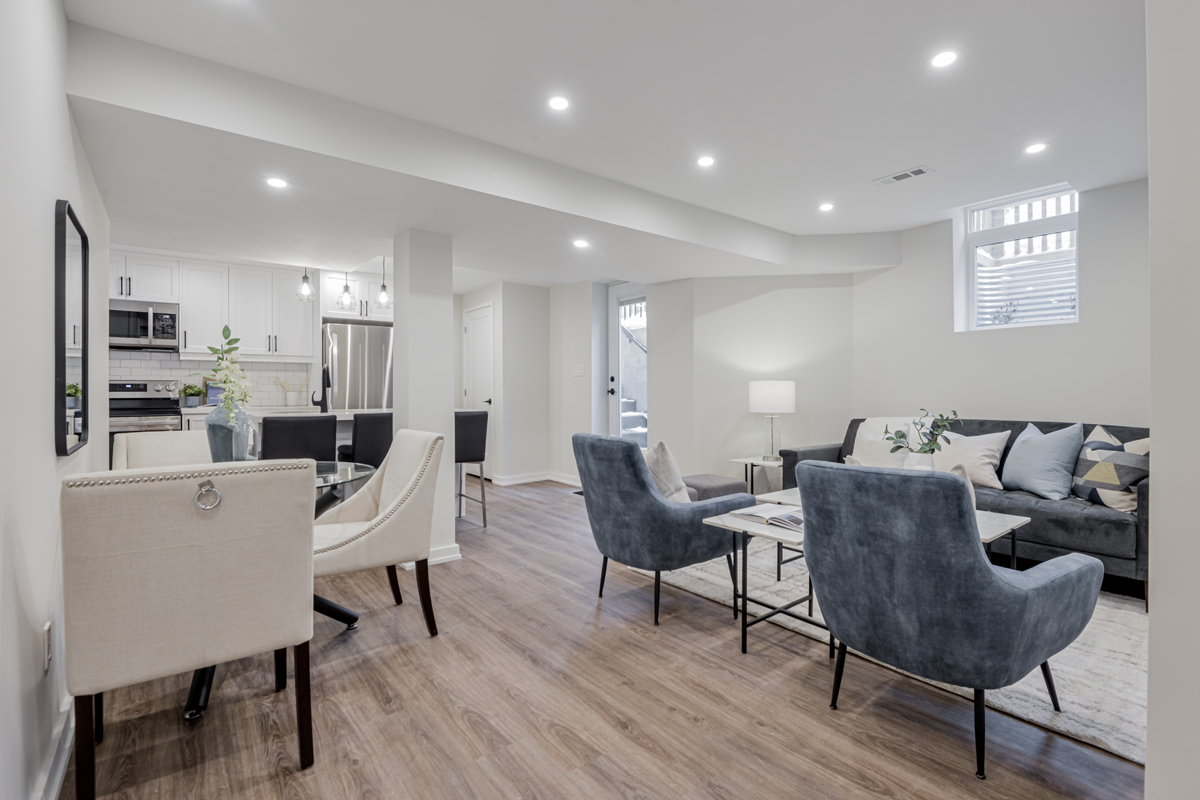Opening Hook
When Ayesha converted her basement in Karachi into a home office, she was excited. The space was quiet, separate from the rest of the house, and perfect for focused work. But within a few months, she began feeling unusually drained and restless after spending long hours there. A friend suggested she look into Feng Shui—the ancient Chinese practice of balancing energy in living spaces. With a few simple changes like adding better lighting, placing mirrors, and rethinking furniture placement, her basement transformed into a space that felt alive and inspiring rather than heavy and isolating.
Basements are unique. They sit below ground, often dark, quiet, and somewhat isolated from the energy of the rest of the house. According to Feng Shui, such spaces can trap stagnant energy if not designed thoughtfully. But the good news is that with intentional planning, your basement can become one of the most harmonious and productive parts of your home.
Let’s explore how Feng Shui principles can be applied to basement layouts so that your underground space radiates balance, positivity, and comfort.
1. Light Is the First Remedy
In Feng Shui, light is a powerful activator of energy (Chi). Basements, by design, often lack natural light, which can make them feel heavy or lifeless.

For instance, Raza from Dubai turned his basement into a gym. At first, he relied on one dim ceiling light. The room felt gloomy, and workouts became harder to enjoy. Once he added layered lighting—overhead lamps, wall sconces, and floor lamps—the space immediately felt brighter and more motivating.
Furthermore, consider warm-toned LED lights that mimic natural sunlight. Mirrors near light sources can also amplify brightness, symbolically “doubling” the energy flow.
Read More: Checklist Before Breaking Ground for a Basement
2. Choose the Right Colors
Colors carry emotional and energetic weight in Feng Shui.
Dark tones, though stylish, can intensify the basement’s naturally heavy feel. Instead, opt for lighter, uplifting colors such as soft beige, pale yellow, sky blue, or light green. These tones create the illusion of openness while encouraging a positive flow of energy.
For example, one Lahore family painted their basement walls a soft cream with touches of green décor. What once felt like a cold storage room suddenly became a welcoming guest lounge.
In contrast, using too much black or grey in a basement can amplify feelings of isolation. Balance is key—if you love darker tones, combine them with warm accents and sufficient lighting.
Read More: What to Do in Case of a Basement Gas Leak
3. Define the Basement’s Purpose Clearly
According to Feng Shui, a space without a clear purpose tends to accumulate clutter and stagnant energy.
Ask yourself: What is this basement meant to be? A home theater? A playroom? A meditation space? Once you decide, the layout and energy flow become easier to manage.
For instance, Hina in Islamabad wanted her basement as both a guest room and storage area. The mixed purpose left the space messy and disorganized. After separating storage into a closed section and dedicating the main area to a guest lounge, the energy shifted—the space felt more intentional and balanced.
Furthermore, defining purpose also influences design choices. A basement office needs strong, stable energy (earthy tones, grounded furniture), while a playroom thrives on vibrant, cheerful energy (bright colors, playful décor).
Read More: Lighting for Relaxation Zones in Meditation Rooms
4. Improve Air Quality and Ventilation
Chi needs to move like fresh air—circulating freely. Unfortunately, basements often have poor ventilation, leading to musty odors or a sense of suffocation.
For instance, Bilal converted his Karachi basement into a studio but noticed it always felt “stale.” By adding an exhaust fan, indoor plants, and an air purifier, he created freshness that aligned with Feng Shui’s emphasis on flowing, breathable energy.
Plants like peace lilies, snake plants, or bamboo palms work beautifully in basements. Not only do they purify air, but they also symbolize growth and life force.
Read More: How to Reduce Indoor Pollution in Underground Rooms
5. Furniture Placement Matters
Basement layouts should encourage flow, not block it.
Avoid cramming furniture against walls or creating awkward dead corners. In Feng Shui, energy should move smoothly around the room, much like water in a stream.
For example, a family in Dubai arranged their basement seating in a circular fashion, creating a sense of togetherness. In contrast, their neighbor placed a large sofa directly under a low ceiling beam—a Feng Shui “no-no” since it symbolically presses down on the people sitting there, causing stress.
Furthermore, place desks and beds so that they face the entrance of the room, never with your back completely turned. This positioning symbolizes control and awareness of opportunities.
Read More: Mixing Traditional Pakistani Decor with Modern Design: Creating Homes with Soul and Style
6. Mind the Ceilings and Beams
Low ceilings and exposed beams can create oppressive energy in a basement.
Feng Shui suggests that overhead pressure can affect the mood and even health of occupants. For instance, Samina’s basement in Lahore had visible beams directly above her bed. She constantly complained of restless sleep. Once she shifted the bed and added a soft ceiling covering, the problem eased.
If moving furniture isn’t an option, hang fabric drapes or use clever false ceilings to soften the visual weight.
Read More: Construction Insurance for Basement Projects in Pakistan: Why It Matters More Than You Think
7. Incorporate Water and Earth Elements Wisely
Since basements are underground, they already carry strong “earth energy.” To balance this, Feng Shui encourages adding other elements—especially water and wood.

For example, a small tabletop fountain adds the soothing sound of water, symbolizing flow and abundance. Wooden furniture or décor brings in growth and upward movement, counteracting the “sinking” feel of being below ground.
In contrast, avoid overloading a basement with heavy stone or too much metal, as it may exaggerate the already grounded, weighty energy.
Read More: Basement Office Ideas – 11 Stylish Work From Home Spaces
8. Clutter Control Is Essential
Basements are notorious for becoming storage dumps. In Feng Shui, clutter blocks energy, trapping the space in stagnation.
For example, Adeel’s basement in Islamabad had piles of old furniture and boxes. No matter how much he cleaned, it always felt heavy. Once he decluttered—keeping only essentials and organizing them into cabinets—the basement became livable again.
Furthermore, clutter isn’t just physical; it’s symbolic. Holding onto broken or unused items creates emotional “baggage.” Clearing space allows fresh opportunities into your life.
Read More: Fire Safety Systems for Underground Levels: Protecting Lives Below Ground
9. Create Symbolic Uplift
Since basements are literally below ground, Feng Shui emphasizes design choices that “lift energy upward.”
This can be done through tall plants, vertical artwork, or even striped patterns that draw the eye upward. Hanging artwork of skies, mountains, or open landscapes can psychologically and energetically counteract the enclosed feeling.
For instance, Fatima in Karachi placed a large painting of a sunrise on her basement wall. Guests often remarked how the space suddenly felt “hopeful” and not buried.
Read More: How to Soundproof a Kids’ Play Area
10. Honor the Emotional Feel of the Space
Finally, Feng Shui is not just about rules—it’s about how a space makes you feel.
Sit in your basement for a few minutes. Do you feel relaxed, energized, or uneasy? Your intuition often reveals whether adjustments are needed.
As an example, a Dubai homeowner realized her basement felt “lonely.” By adding family photos, warm rugs, and cozy seating, she infused it with personal energy, making it welcoming.
Read More: Best Ceiling Fans for Low-Height Basements
Closing: A Basement That Breathes with Energy
Basements may be below ground, but they don’t have to feel heavy or lifeless. With the wisdom of Feng Shui, you can transform these spaces into vibrant extensions of your home.
Remember:
- Light and air are the lifelines of Chi.
- Colors and furniture placement shape mood and energy.
- Decluttering and symbolic “uplift” bring balance.
- Above all, intentional design makes the space purposeful.
Final Thought: Your basement doesn’t have to be just a storage space or an afterthought. With Feng Shui, it can become the heart of creativity, relaxation, or productivity in your home—a place where energy flows freely, even underground.
🏗️ Basement Project Calculator
Latest Post
-
How to Build a Legal Basement Apartment in the USA | Guide
Opening Hook Imagine this: you’re standing in the nearly-finished basement of your home in the USA, and the monthly rent from the future tenant—or perhaps your aging parents moving in with you—is just about enough to cover your mortgage. You’ve envisioned your own “in-law suite,” financial freedom, or added flexibility. But then, you pause and…
-
20 Best Basement Man Cave Ideas for the Ultimate Space
Imagine this: you come home after a long week in your busy USA-based life, head downstairs, flip on the lights in the basement, and step into your very own retreat — a space built just for you. That’s the magic of basement man cave ideas, a growing trend for homeowners who want a unique sanctuary…



